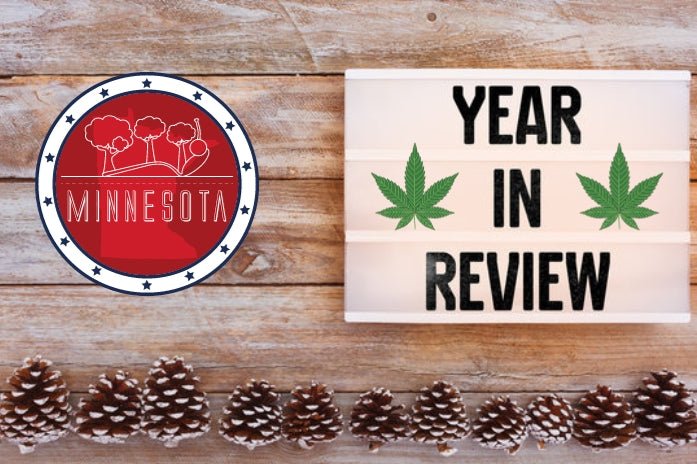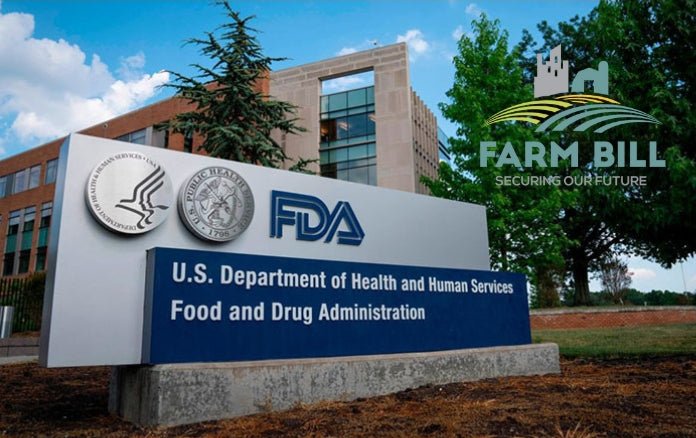From the proliferation of and backlash against Intoxicating Hemp Derivatives (IHDs) to a delayed renewal of the Farm Bill, the past year witnessed remarkable progress and debilitating setbacks for the sister plants.

It is once again that time of year when individuals, organizations, and society look back on the past 365 days to see what stories and issues dominated the hearts, souls, and minds in this country and around the globe. For many, 2023 will be the year of war, a reimagined feminist icon in a former much-maligned children’s doll, and the global creative community coming together to fight back against corporate greed and the genuine threat of artificial intelligence.
2023 was also a momentous year for the hemp and cannabis industries. Minnesota and Ohio came online as the 23rd and 24th to legalize adult-use marijuana. The talk of rescheduling cannabis became an actual reality. And the issue of what to do with hemp and its myriad of intoxicating derivatives continued to frustrate and mobilize both supporters and detractors of the wildly popular and much-maligned hemp offerings.
Overall, the hemp sector enjoyed a robust and profitable year, with total market revenues exceeding $28 billion. However, the industry also faced several challenges from state legislatures, which passed bills attempting to restrict or altogether ban IHDs like delta-8 THC severely.
Over the following few articles, Nothing But Hemp will examine the most talked about, clicked-on, and hotly debated topics in both industries this past year.
The Civil War Between Cannabis and Hemp
The number one story of 2023 is undoubtedly the saddest and most destructive one as well. With the passage of the 2018 Farm Bill, congressional lawmakers legalized hemp and all of its downstream derivatives for the first time in almost a century. That simple yet incredibly massive move led to an explosion of products, notably CBD and the abovementioned IHDs.
However, while the measure allowed for the cultivation, manufacture, and sale of hemp and hemp products, the Farm Bill did very little to develop a regulatory infrastructure to monitor the efficacy and safety of the new and burgeoning market.
The task of trying to regulate the young sector fell to the U.S. Food and Drug Administration (FDA). However, earlier this year, the regulatory body sent a letter to Congress, effectively washing its hands of the enigmatic market sector until lawmakers provide more information about the safety of CBD products to properly regulate them as foods or supplements under the FDA's current structure.
In a statement, FDA Deputy Commissioner Janet Woodcock said, "A new regulatory pathway would benefit consumers by providing safeguards and oversight to manage and minimize risks related to CBD products."
"A new regulatory pathway would benefit consumers by providing safeguards and oversight to manage and minimize risks related to CBD products."
- FDA Deputy Commissioner Janet Woodcock
As a result, a few aggressive and unscrupulous operators began developing high-dose THC products derived from hemp. Most involved the use of synthesized cannabinoids, like delta-8 and delta-10 THC.
Sadly, at least one of those products has been linked to the death of a toddler in Virginia last year. In addition, there have been multiple cases of individuals, including teenagers, falling ill after ingesting items containing hemp-derived delta-8 THC. In response to the increase in high-potency products, several states began to pass legislation severely restricting and, in many cases, banning the politically toxic THC variant.
Fueled predominantly by the Corporate Cannabis lobby, many of those anti-hemp statutes were directly challenged in court by hemp businesses and advocates in 2023. Surprisingly, most of the rulings came down in favor of hemp.
In his recent five-piece series on the hemp/cannabis conflicts for Forbes Magazine, Robert Hoban details the legal, cultural, and economic issues surrounding the growing and potentially devastating clash between cannabis and hemp interests.
Through his exhaustive examination of the players, facts, and myths surrounding hemp and the economic fallout an all-out war would cause, Hoban separates propaganda from truth. He also sheds insightful light on the true promise of hemp and all of its downstream uses.
The first item Hoban takes swift and decisive aim at in his breakdown of the issues driving the conflict is the notion of an “unwanted loophole” in the 2018 Farm Bill enabling the explosion within the IHD marketplace.
“In terms of the legal framework that has created this ‘market,’ let’s set the record straight – the legality of hemp-derived cannabinoids is no ‘loophole.’ As previously stated, a loophole is defined as ‘an ambiguity or omission in the text through which the intent of a statute, contract, or obligation may be evaded.’ Rather, Congress was very intentional in selecting its words,” Hoban writes.
"In terms of the legal framework that has created this ‘market,’ let’s set the record straight – the legality of hemp-derived cannabinoids is no ‘loophole.’ As previously stated, a loophole is defined as ‘an ambiguity or omission in the text through which the intent of a statute, contract, or obligation may be evaded.’ Rather, Congress was very intentional in selecting its words,”
- Robert Hoban, Forbes Magazine Cannabis/Hemp Contributor
Simply put, there is no loophole. This logical and sound reasoning is not just Hoban’s opinion. Several lawsuits filed in states like Arkansas, Texas, and Maryland by hemp companies seeking to challenge the legality of state laws severely restricting or banning IHDs have resulted in wins for the hemp industry. Much of the legal basis behind those victories centers on the rock-solid legal foundation presented by the intentional language of the 2018 Farm Bill.
Despite those legal victories, the war continued to rage throughout 2023. Many advocates and stakeholders on both sides hoped the 2023 Farm Bill renewal could be the appropriate and definitive platform to finally clarify the actual legality of hemp and hemp derivatives and develop a compelling regulatory infrastructure to monitor the popular and expanding hemp sector. However, partisan politics resulting in legislative gridlock led to an emergency extension for the Farm Bill until September 2024.
That leaves just nine precious months to hammer out a compromise that satisfies both sides of the increasingly caustic issue. At the end of the day, it boils down to greed and power. Many in the Corporate Cannabis camp will only be satisfied when all IHDs are illegal or only available at legal and regulated marijuana retail dispensaries. That is an untenable position and one that could lead to catastrophic consequences for hemp and marijuana.
With cannabis still illegal in 26 states, IHDs provide the only source of relief for users in those states. Instead of fighting each other over market share and hemp’s legal right to exist alongside its sister plant, marijuana, it is critical that both sides see the mutual benefits of cooperation and working together.
Hemp and cannabis are inextricably linked. By working together and getting past this current impasse, the two industries could help each other build one of the largest and most lucrative multi-faceted industries in American History.








































